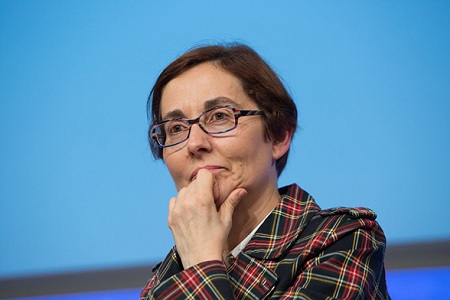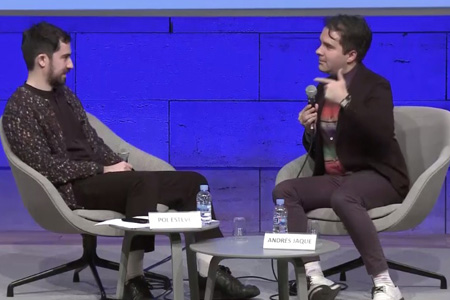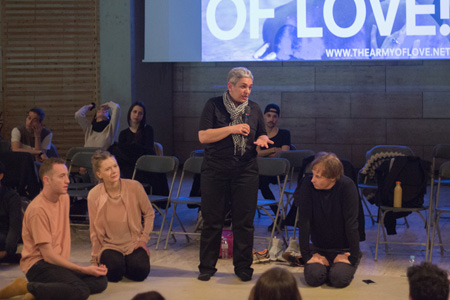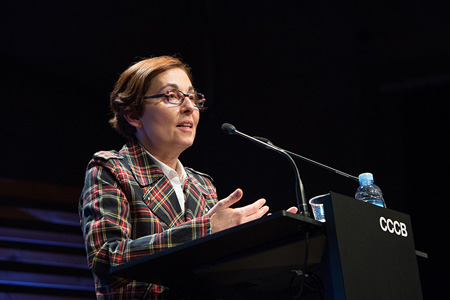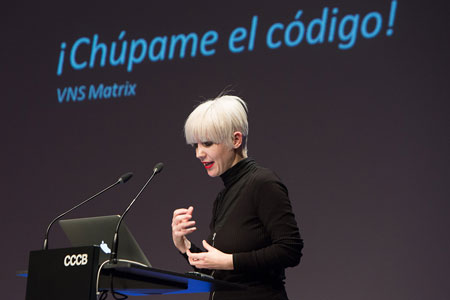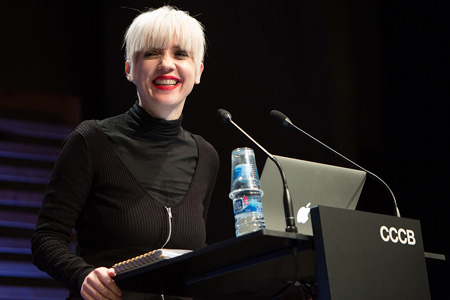Politics of Desire
In the frame of the "1,000 m2 of desire" exhibition, this lecture cycle draws attention to the new visibility of sexuality as a vector of empowerment, and offers keys to understanding that what we might desire, and how we might desire it, now constitute an essential space for reflection and criticism.
Marta Segarra: “We want to possess the other and end up dispossessing ourselves”
Anna Punsoda
To what extent is desire—which, at first sight, seems to be a phenomenon of the impulses connecting humans with animality—culturally conditioned? How do clichés about femininity affect a woman’s attitude to life and the decisions she makes? How much room have women had to discover their desire in a cultural and sexual history written by men? We speak with Marta Segarra, Professor of French Literature and Gender Studies at the University of Barcelona and director of the Women and Literature Centre.
Army of Love: Presentation and Recruitment Session
Workshop-performance by Dora Garcia, Ingo Niermann, Michelangelo Miccolis and Krõõt Juurak
Do love and sexuality constitute a basic right? Should the community guarantee them? Should they be included among the resources distributed by the state? Army of Love is a group of activists which has been created precisely “to offer all-encompassing sensual love—care, desire, sex, and respect—to all who need it”, whether their bodies conform or not to the orthodox canons of desire, beauty, and physical and mental functioning.
Private space, online relationships, identity and desire on Internet
Summary of the Remedios Zafra lecture
How do we live sexuality from the supposed intimacy of our connected rooms? Being onstantly connected affects our identities, bodies and personal relationships?
Lucía Egaña, Brigitte Vasallo and Eloy Fernández Porta
My body is a battleground
What kind of discourse traverses our bodies and its affections? How does power impinge on the design of bodily behaviour, morphologies and physiologies? To what end? What capacity do we have to reinvent our bodies and affections beyond the bounds of the norm? A panel discussion with Lucía Egaña, Brigitte Vasallo and Eloy Fernández Porta.
Jack Halberstam
Trans* Bodies
How has the representation of transgender and transsexual bodies evolved in popular culture? Might we be able to imagine a future in which gender could be optional or hackable or, to go still further, a genderless future? Jack Halberstam, Professor of American Studies and Ethnicity, Gender Studies and Comparative Literature at the University of Southern California (USC), reflects on this questions in a lecture presented by sociologist and activist Miquel Missé.
